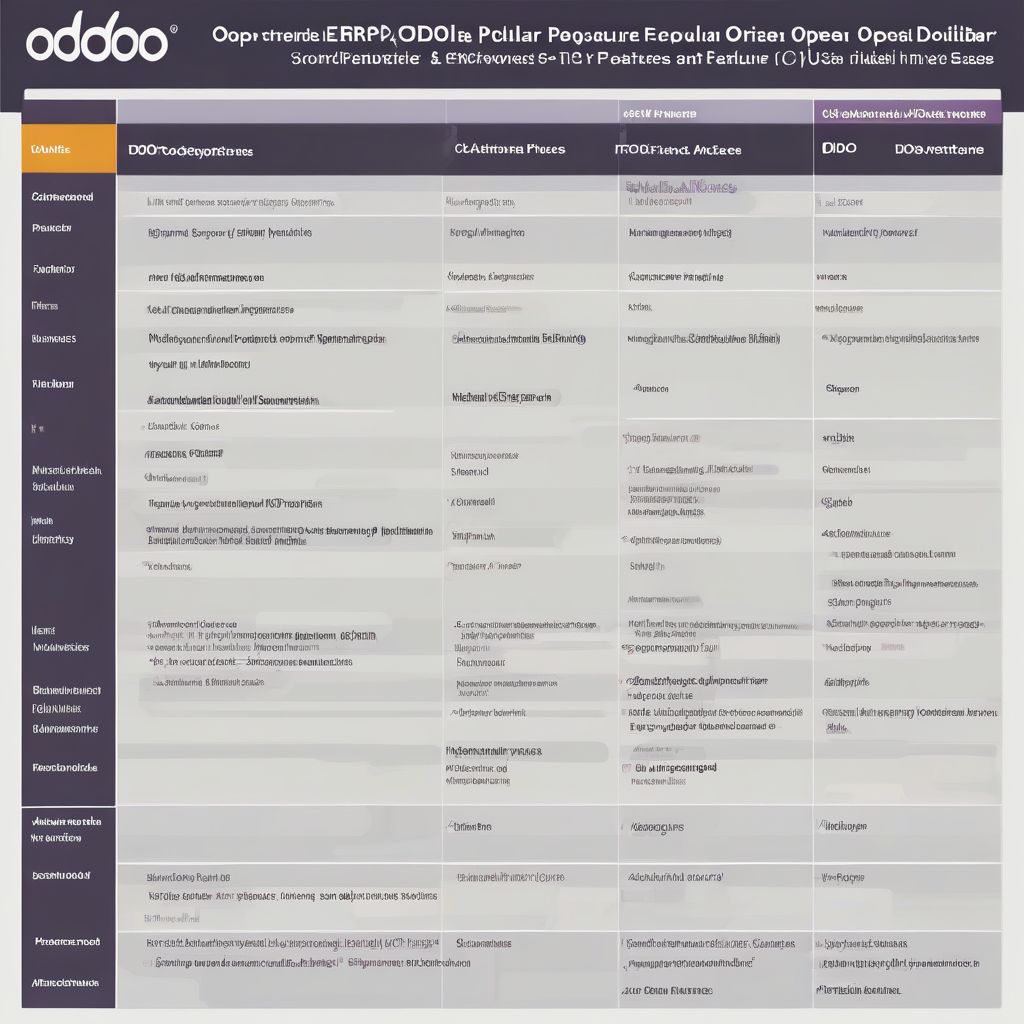Open Erp Software has emerged as a game-changer for businesses of all sizes, offering a cost-effective and flexible way to manage critical business processes. But with so many options available, choosing the right open ERP software for your organization can feel overwhelming.
This comprehensive guide will delve into the world of open ERP, exploring its benefits, addressing common questions, and providing insights to help you make an informed decision.
Understanding Open Erp Software
What is Open Erp Software?
Open ERP software, also known as open source ERP software, refers to Enterprise Resource Planning (ERP) systems whose source code is publicly available for use, modification, and distribution. Unlike proprietary software, open ERP software allows businesses to access and customize the software’s core functionalities without licensing fees.
Benefits of Choosing Open Erp Software
The increasing popularity of open ERP software stems from its numerous advantages:
- Cost-effectiveness: Eliminating licensing fees significantly reduces the initial investment cost, making it an attractive option for startups and SMEs.
- Flexibility and Customization: Open source code allows businesses to tailor the software to their unique requirements, integrating specific features and functionalities.
- Community Support: A vast and active community of developers and users offers a collaborative environment for troubleshooting, sharing knowledge, and accessing resources.
- Vendor Independence: Open ERP software frees businesses from vendor lock-in, providing the flexibility to switch providers or migrate systems as needed.
- Security: Open source nature encourages continuous improvement and scrutiny by the community, leading to robust security measures and vulnerability patching.
Key Considerations When Choosing Open Erp Software
Selecting the right open ERP software requires careful evaluation of your business needs and the software’s capabilities.
Here are some essential questions to ask:
- What are your core business processes that need improvement?
- What modules or functionalities are essential for your operations?
- What is your budget for implementation and ongoing maintenance?
- How important is scalability and future growth potential?
- Do you have in-house technical expertise, or will you require external support?
Popular Open Erp Software Options
Several reputable open ERP software solutions have gained significant traction in the market. Some notable examples include:
- Odoo: Known for its user-friendly interface and modular approach.
- xTuple: A comprehensive solution suitable for manufacturing and distribution businesses.
- Dolibarr: A highly customizable option with a strong focus on CRM and project management.
 Open Source ERP Software Comparison Chart
Open Source ERP Software Comparison Chart
Open ERP Implementation: Key Steps
Successful open ERP implementation requires careful planning and execution.
Here’s a general roadmap:
- Needs Assessment: Thoroughly analyze your business processes and identify areas for improvement.
- Software Selection: Research and compare different open ERP solutions to find the best fit.
- Data Migration: Plan and execute data migration from existing systems to the new ERP platform.
- Customization and Development: Tailor the software to meet your specific business requirements.
- Training and Support: Train users on the new system and establish support channels.
- Go-Live and Evaluation: Deploy the software and continuously monitor its performance, making necessary adjustments.
Conclusion
Open ERP software empowers businesses with cost-effective, flexible, and customizable solutions to streamline operations and enhance efficiency. By carefully assessing your needs, selecting the right software, and following a structured implementation process, you can leverage the power of open ERP to drive growth and achieve your business goals.
We encourage you to share your thoughts and experiences with open ERP software in the comments section below.